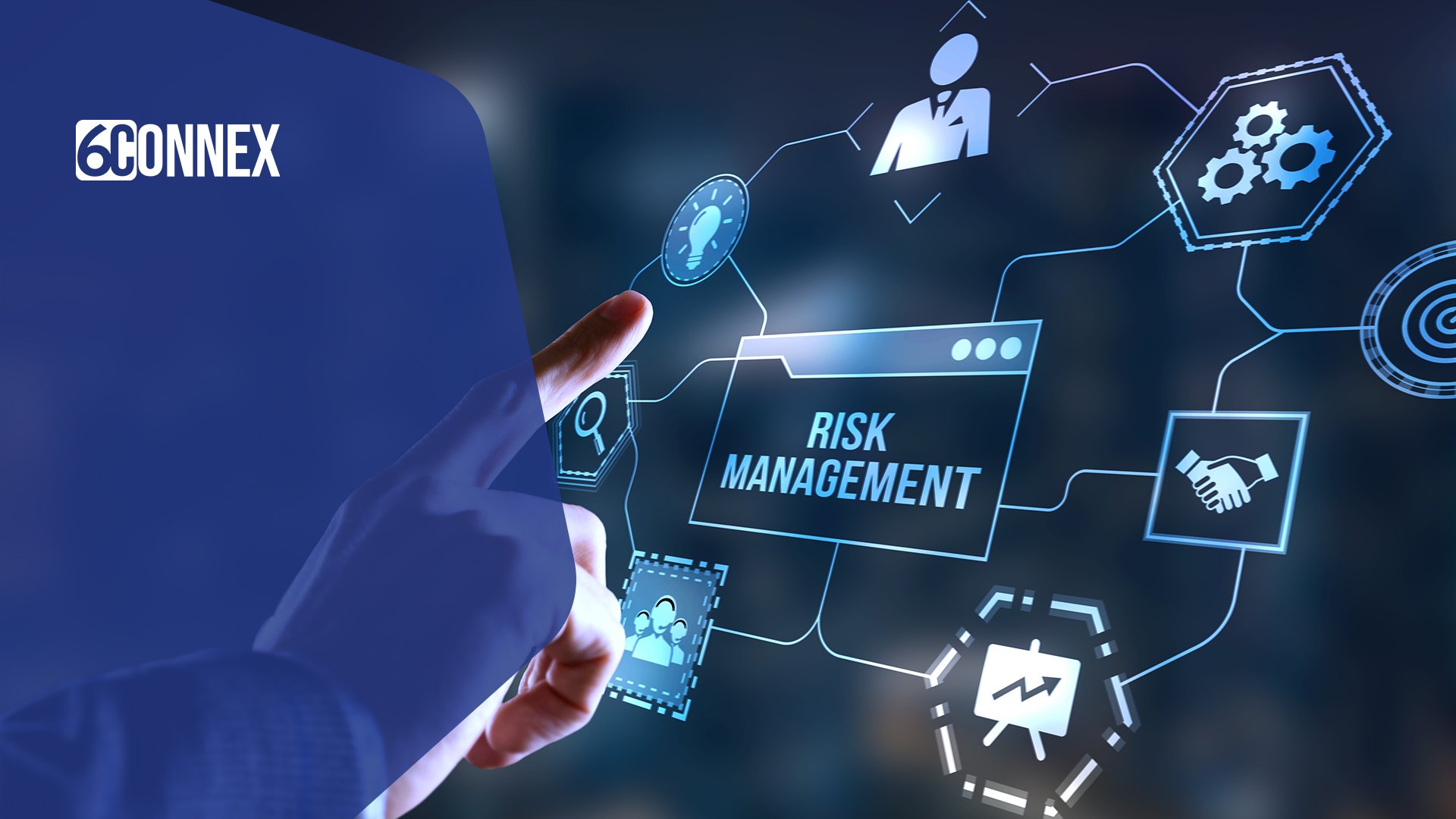Event Risk Management: What to Do When Crisis Strikes
Kortney Phillips
Jun 28, 2023 9:29:03 AM

In February 2023, Google announced its AI chatbot, Bard, in response to OpenAI’s ChatGPT. During the live event in Paris, the AI chatbot made a factual error in its first demo. When asked about the discoveries of the James Webb Space Telescope, Bard responded with three bullet points, including one stating that the telescope took the very first pictures of a planet outside our solar system. This led to a significant backlash by researchers, astronomers, and astrophysicists, as the first image in question was taken in 2004 with the VLT/NACO.
Furthermore, a demo phone was misplaced during an announcement about a new Lens feature at the same event. Consequently, the presenter was left empty-handed and forced to conclude the presentation with a promise to showcase the feature in the following Q&A.
Unexpected event crises such as these can occur with improper event planning. Preliminary tests, fact-checks, and robust backup and communication plans are essential to providing attendees with a seamless event experience, and risk management is a critical component of event success.
Risk management is a necessary and empowering aspect of event planning.
While organizing events is an exciting endeavor, and companies can benefit significantly from bringing people together to enjoy unforgettable experiences, hosting events also means navigating uncertainties and managing potential risks. However, by proactively addressing possible challenges, you can safeguard your brand reputation and the safety and well-being of all involved.
Transport and traffic issues, speaker no-shows, hazards, and power outages are just a few examples of risks that may arise during events. Risk management is, therefore, a necessary and empowering aspect of event planning. While working with a trusted broker or risk consultant and securing comprehensive insurance coverage are crucial steps, there's more to consider when adding to your event risk management checklist. For example, event planners need to:
Creating a comprehensive event risk assessment management plan helps ensure a seamless attendee experience and a safer environment. By embracing this process, you empower yourself and your team to make informed decisions that enhance the overall success of your events.
Let's delve deeper into event risk management and explore how you can develop and implement an effective risk management plan for your events. Doing so ensures you create memorable and positive event experiences while minimizing disruptions.
Here are the steps to help you prepare for and manage an event crisis:
An event risk management plan documents the actions you will take to mitigate the risks you have identified. Your event risk management plan should include the following:
Done right, an event risk management plan can enable you to:
Creating a risk assessment document can help you keep track of the situation and organize your efforts to manage the crisis. It must include the following:
Effective coordination and communication among attendees, event stakeholders, and your event planning team are essential to manage risk successfully. Be sure to assign a trustworthy spokesperson to speak about the crisis with a clear message on behalf of your organization.
Also, be thorough and deliver all the critical information regarding the crisis so your audience can respond appropriately rather than overreact to the situation or jump to conclusions. Keep messages clear and concise, avoid technical jargon, and provide timely updates about the situation.
Leverage social media channels and forums with associated hashtags to reach the widest audience. You can also communicate via email, phone, and live chat features in your event platform. Furthermore, you can create crisis-specific web pages highlighting high-priority topics and providing critical information.
Be transparent in communicating about your efforts to manage the crisis. Your stakeholders are more likely to maintain their support if they know the situation is manageable and the right actions are being taken.
You must train your staff and team members to respond to the emergency. They should know how to follow the action plan, define and classify the crisis, monitor the situation, etc. Assign staff roles and responsibilities, whether handling attendees, communicating with vendors, or managing the equipment.
Conduct background checks on staff, analyze all their event roles and the associated risks (dealing with large crowds, marshaling busy roads, lifting heavy equipment, etc.), and provide them with the necessary directions to ensure their safety.
For your event risk assessment, prepare an in-depth contingency plan in case of crisis. The plan should be comprehensive and informed by your risk assessment document to help you quickly respond to an emergency. A contingency plan can include the following:
Consider forming an event risk committee in your organization to assist with identifying risks and creating a streamlined approach to event risk management and safety. The committee can ensure that your risk management plans align with the organization’s objectives and values and complies with rules, regulations, and bylaws.
A successful event risk management strategy consists of three steps:
When crisis strikes, you must:
Inform your vendors about how the crisis impacts the event and your plans to alleviate the situation, such as evacuation procedures. Work with them to arrange the necessary services to handle the situation and replace equipment (in case of damage, malfunction, etc.).
A crisis can compel you to change the way you operate. For example, you might have to adjust your event schedule if a speaker doesn’t arrive on time or the necessary equipment is damaged.
Depending on the nature of the crisis, you may have to postpone or cancel the event. To make this decision, assess the event's value to your organization. Canceling a private seminar of 20-30 attendees significantly differs from canceling a large-scale conference with thousands of participants.
Pivoting your physical event to a virtual one is better than canceling it. While it may seem challenging to replicate in-person registration, communication, networking, etc., in a virtual format, with platforms like 6Connex, you can easily host and manage virtual events and provide your audience with engagement features and interactive opportunities that mimic an in-person event experience. For example, most virtual event platforms have built-in ticketing and registration integrations, networking and gamification features, and numerous other event tech integrations that facilitate a comprehensive event experience no matter the event format.
Crises can expose the gaps in your event processes. Examine how you handled previous crises, adjust, and prepare to manage these risks in future events.
Have a centralized record of all your meetings and events to quickly capture the possible risks and easily access all critical event information (type, costs, registrations, venue, dates, etc.).
Look at the changes you made to your program due to previous crises and see how they will affect your entire event portfolio in the long term. You might also want to consider hosting hybrid events to ensure you always have a virtual option available should your in-person event be at risk.
Following are a few things that can go wrong at events:

Severe weather and storms, such as hurricanes or heavy snowfall, can harm individuals, equipment, and venues. These extreme weather events pose risks such as property damage and power outages, making transportation difficult. Therefore, if you are organizing an in-person event, it is crucial to anticipate and prepare for adverse weather conditions to ensure the well-being of your event attendees.
To effectively address stormy conditions, it is vital to have contingency plans in place. Consider establishing a backup plan to transition to a virtual event. This flexibility will allow you to adapt swiftly and prioritize the safety of participants.
When it comes to event equipment, it's crucial to address potential risks and prioritize the safety of attendees and the smooth operation of your event. Various factors, such as maneuvering equipment in and out of the venue, electrical installation safety, trip hazards, and the impact of weather changes, need careful consideration.
To mitigate these risks, hiring qualified staff who can expertly handle equipment-related challenges is essential. These professionals can provide invaluable assistance in ensuring proper equipment setup, maintenance, and dismantling, minimizing the potential for accidents or damage.
Before the event, it is essential to thoroughly test all machinery and equipment to identify any possible faults or malfunctions. This proactive approach allows you to address any issues and make necessary repairs or replacements in advance, reducing the likelihood of equipment failures during the event.
When organizing in-person events, it's essential to address potential transportation challenges that could arise, such as crowded parking, unclear signage, limited pedestrian areas, road obstructions, flight delays, vehicle issues, or unforeseen accidents. These factors can lead to delays and inconvenience for key event stakeholders.
To foster a positive experience for participants, it is crucial to mitigate transportation risks proactively. Begin by identifying potential issues related to public roads, traffic, and various modes of transport. You can develop effective strategies to minimize incidents and disruptions by mapping out these risks.
Consider implementing measures such as dedicated marshaling and well-organized parking facilities to streamline traffic flow and optimize accessibility. Clear signage and guidance can help attendees navigate the event venue with ease. Additionally, ensure that pedestrian areas are designated and accessible, prioritizing the safety and convenience of all participants.
Pro Tip: When planning events, incorporate event technology, like the Eventory app's transportation integration. Attendees can enjoy the added convenience of scheduling an Uber ride from the app, ensuring a seamless and stress-free journey to and from the event venue. This innovative feature will testify to your commitment to enhancing the attendee experience.
Regardless of how diligently you plan and execute your event, there is always the possibility of last-minute cancellations by attendees, sponsors, presenters, or entertainment, causing unexpected turmoil. To effectively manage these situations, it is essential to have a well-defined cancellation policy in place.
When crafting your cancellation policy, consider the following:
You can effectively mitigate the risk of last-minute cancellations by implementing a well-crafted cancellation policy and ensuring all participants know its terms. This proactive approach helps maintain stability and minimizes potential disruptions.
It is crucial to carefully consider food preparation, storage, and serving at your in-person event. The last thing you want is hungry attendees or, even worse, attendee health issues such as allergies or food poisoning.
To avoid these unfortunate scenarios, it is essential to take proactive measures. You can start by thoroughly vetting and selecting reliable vendors who prioritize food safety and have the necessary certifications. This will help ensure that the food provided at your event meets the highest quality and hygiene standards.
Moreover, accurately estimating the number of attendees and their dietary preferences can help you plan for an adequate food supply. Collaborate closely with your chosen vendors to ensure they thoroughly understand the expected demand. Regularly communicate with them leading up to the event to make any necessary adjustments and prevent the possibility of a food shortage.
Accidents and injuries can happen at a large-scale event, and in the case of an emergency, there is also the risk of a stampede. Serving alcoholic beverages can further contribute to these risks.
Ensure you have skilled first aid staff and the necessary medical supplies on site. Know where local hospitals are located and include this information in your event briefs to your team. You should also have a crowd management process to prevent panic, create easy access to your event, provide proper signage to manage the crowd’s flow, designate emergency entry and exit strategies, guarantee safe disability access, etc.
In addition to these, other potential event risks that you must consider include:
Selecting a virtual event platform with robust built-in data security mechanisms, such as 6Connex, is crucial in ensuring a safe and secure environment.
Data security is a paramount concern for event managers today as the threat of cybercrime continues to rise. It is essential to take proactive measures to protect attendee data and maintain the integrity of your event. Selecting a virtual event platform with robust built-in data security mechanisms, such as 6Connex, is crucial in ensuring a safe and secure environment.
6Connex prioritizes data security and strictly adheres to GDPR. It also offers advanced security settings and controls to minimize the exposure of personal data. With features like customized terms and conditions, time restrictions, and user permissions and access controls, 6Connex provides comprehensive security and privacy protections.
In addition to choosing a secure platform, there are other steps you can take to mitigate the risk of a data breach:
By employing these strategies and leveraging a secure virtual event platform like 6Connex, you can instill confidence in your attendees and create a safe environment where all data is protected. Prioritizing data security is not only essential for compliance but also crucial for maintaining the trust and reputation of your event.
 Event Software
Event SoftwareIn the case of virtual events, there is always the risk that your virtual event platform or streaming tool is a poor fit for your event. You can be restricted by the limitations of the tools, the latency of the software, or the complexity of the technology. The risk of on-site internet issues can further worsen the problem.
Consider opting for end-to-end virtual event solutions like 6Connex that leverage the power of AI to give you a user-friendly, comprehensive event management experience. The platform allows you to create infinitely scalable, branded, and interactive virtual venues, with numerous networking and engagement tools and various event tech integrations to enhance attendees’ overall event experience.
Whether hosting a virtual or in-person event, the possibility of a sudden power outage looms. Outages can occur for various reasons, including overload, equipment failure, unforeseen weather conditions, scheduled maintenance, human error, or animal interference.
To effectively handle this situation and minimize the impact on your event, it is crucial to be prepared. Consider implementing the following measures:
By proactively considering the potential for power outages and implementing these strategies, you can effectively minimize disruptions, maintain the continuity of your event, and showcase your preparedness and dedication to ensuring a smooth and uninterrupted experience for all attendees.
Event planning teams may need more infrastructure, support, and technical know-how to leverage virtual event solutions. Without expertise in hosting virtual events and support from the event tech vendor, you risk delivering an unpleasant event experience.
Use the proper tech support to help you manage event processes better. You can also leverage 6Connex’s Auto-Pilot service plan to benefit from white-glove project management and add-on services.
To effectively manage event risks, event planning teams should prepare to be flexible and create a thorough risk management plan for potential crises and their consequences. Once a crisis has passed, it is also essential to rebuild your event program with your new lessons in mind. By implementing improved systems and processes, you can enhance future event experiences and ensure smoother operations moving forward.
6Connex is a trailblazing provider of comprehensive event technology. For more than 15 years, we have empowered event organizers worldwide to create unforgettable experiences, whether in-person, virtual, or hybrid.
Our all-in-one platform revolutionizes event management, making it a breeze to plan, host, and execute successful events of any scale or format. Say goodbye to the complexities and challenges that often accompany event planning. With 6Connex, you can access a wealth of functionality, integrations, and cutting-edge event tools that transform your events from ordinary to extraordinary.
Imagine effortlessly streamlining your event management processes, all while delivering a unique and engaging experience to your attendees. 6Connex is here to make that vision a reality. Our platform has everything from seamless attendee registration and virtual exhibitor booths to interactive sessions and immersive networking opportunities.
Don't just take our word for it—experience the power of 6Connex for yourself. Request a virtual event platform demo today and witness how our innovative solutions can prepare your organization to respond to crises and drive unparalleled success in your events.
References
https://www.blerter.com/blog/the-top-10-safety-risks-every-event-manager-should-plan-for
https://mashable.com/article/google-ai-maps-search-event-bing-bard-inaccuracy
https://www.theverge.com/2023/2/8/23590864/google-ai-chatbot-bard-mistake-error-exoplanet-demo
https://www.cvent.com/en/blog/events/things-might-go-wrong-event
https://www.zuddl.com/blog/six-challenges-faced-by-virtual-event-organizers
https://eventify.io/blog/planning-a-virtual-event-top-12-challenges-to-handle
https://eventscase.com/blog/data-security-for-virtual-and-hybrid-events
https://www.marsh.com/ca/en/services/risk-consulting/insights/event-risk-management.html
https://www.danthermgroup.com/en-gb/master/climate-control-tips-for-outdoor-event-organisers
https://www.cvent.com/en/blog/events/event-risk-management-planning#adapt
6Connex is the leading provider of in-person, hybrid, and virtual event technology for enterprises worldwide. Our cloud-based product portfolio includes event management tools, in-person event apps, virtual venues, webinars, learning management, and more.
From internal meetings to large scale conferences, we allow you to engage and transform big ideas into real-world results.
425 Soledad St.
Suite #500
San Antonio, TX 78205
1.800.395.4702
Australia: +61.2.72294013
Brazil: +55.11.4375.3555
United Kingdom: +44.20.37447284
United States: +1.210.890.5769